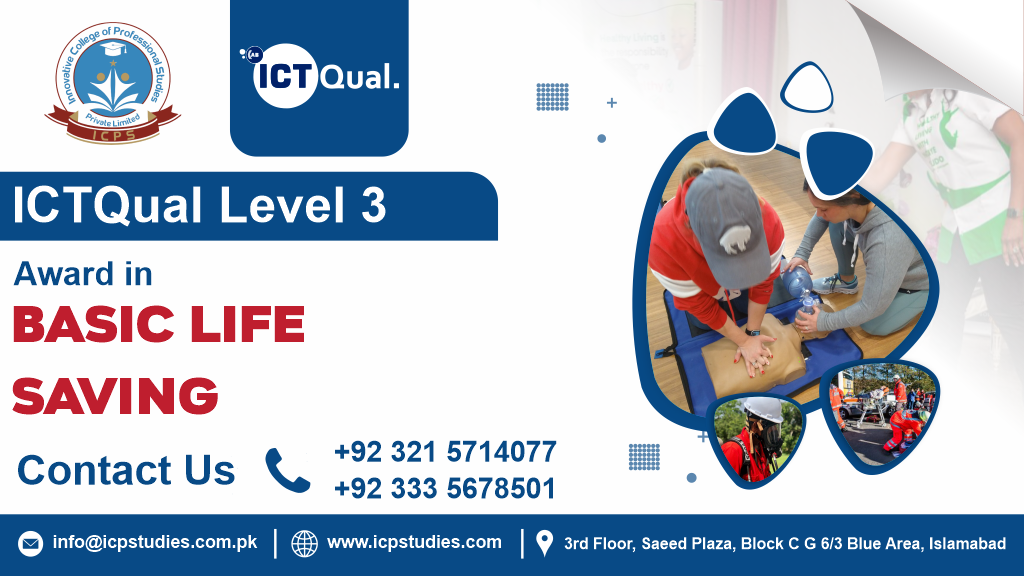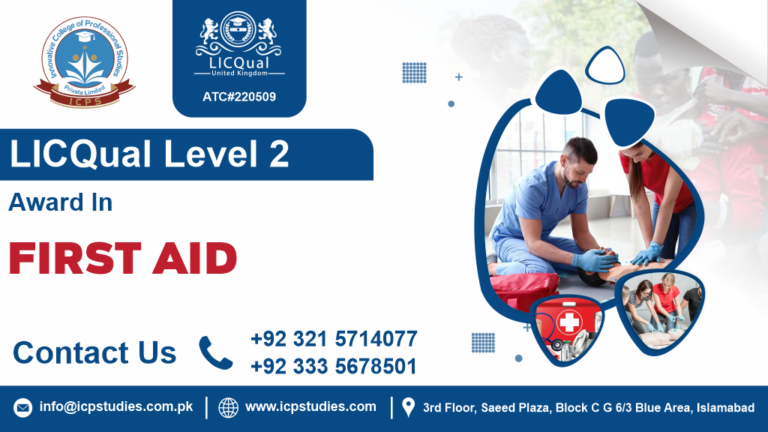In a world where emergencies can happen at any moment, having the skills to respond effectively can make all the difference. The Level 3 Award in Basic Life Saving is designed to equip individuals with essential life-saving techniques, preparing them to act confidently in critical situations. Whether you’re a first-time learner or looking to refresh your skills, this qualification is a valuable asset in any setting. Here’s a comprehensive look at what the Level 3 Award entails, why it matters, and how it can impact your life and those around you.
The Level 3 Award in Basic Life Saving is a qualification that provides individuals with the knowledge and practical skills needed to perform basic life-saving procedures. This award is often delivered by accredited training providers and follows rigorous standards to ensure that participants receive high-quality instruction.
The Level 3 Award in Basic Life Saving is more than just a qualification; it’s a commitment to being prepared for emergencies and making a positive impact on the safety and well-being of those around you. Whether you’re a parent, teacher, caregiver, or simply someone who wants to be ready to help in critical situations, this award provides the skills and confidence you need to act effectively.
All About ICTQual Level 3 Award in Basic Life Saving
Course Overview
The Level 3 Award in Basic Life Saving is a formal qualification designed to equip individuals with fundamental life-saving skills and knowledge. This award is typically offered by accredited training organizations and follows recognized standards to ensure that participants receive thorough, high-quality training.
The Level 3 Award in Basic Life Saving is an essential certification for gaining critical life-saving skills and knowledge. It prepares individuals to handle emergencies effectively and confidently, ultimately contributing to a safer environment for everyone. Whether for professional requirements or personal preparedness, this award is a valuable investment in safety and emergency readiness.
Study Units
- Introduction to Basic Life Saving Rules
- Cardiopulmonary Resuscitation (CPR)
- First Aid Essentials
- Emergency Communication
- Basic Life Saving in Specific Situations
- Psychological First Aid
To enroll in the ICTQual Level 3 Award in Basic Life Saving, participants typically need to meet the following requirements:
- Age Requirement: Participants should be at least 16 years old.
- Basic Literacy and Numeracy: A good understanding of English is essential for completing the course materials and assessments.
- Physical Fitness: Participants should be in good physical condition to perform practical life-saving techniques.
- Course Registration: Participants must register for the course through an accredited training provider.
- Payment: Course fees must be paid as required by the training provider.
- Commitment to Attend: Participants should be prepared to attend the full duration of the course and complete any required assessments to receive certification.
The ICTQual Level 3 Award in Basic Life Saving is designed for:
- Aspiring Lifeguards: Individuals preparing for roles in swimming pools, beaches, or other aquatic environments.
- Health and Safety Professionals: Those responsible for implementing safety measures in various settings, including workplaces and public areas.
- Community Volunteers: Individuals involved in community programs or organizations that focus on health and safety.
- Sports Coaches and Instructors: Those working with groups or teams, particularly in activities that involve physical exertion.
- Parents and Caregivers: Individuals looking to enhance their skills in providing emergency care for children or family members.
- Anyone Interested in First Aid: Individuals seeking to learn essential life-saving techniques to assist in emergencies.
Learning Outcome
Introduction to Basic Life Saving Rules
Learning Outcomes:
- Understand the Principles: Demonstrate an understanding of the fundamental principles and importance of basic life-saving techniques.
- Identify Key Procedures: Recognize and explain the key procedures and protocols for basic life saving, including safety considerations and legal responsibilities.
- Assess Emergency Situations: Evaluate and identify different types of emergency scenarios and the appropriate basic life-saving response for each.
2. Cardiopulmonary Resuscitation (CPR)
Learning Outcomes:
- Perform CPR Techniques: Accurately perform Cardiopulmonary Resuscitation (CPR) for adults, children, and infants, including chest compressions and rescue breaths.
- Use CPR Equipment: Demonstrate proper use of any relevant equipment, such as resuscitation masks or barriers, during CPR.
- Assess Effectiveness: Assess the effectiveness of CPR and know when to seek additional help or advanced medical assistance.
3. First Aid Essentials
Learning Outcomes:
- Identify Common Injuries: Identify and provide initial care for common injuries and medical conditions, including cuts, bruises, burns, and fractures.
- Apply First Aid Techniques: Apply essential first aid techniques, including wound cleaning, bandaging, and immobilizing fractures.
- Recognize Signs of Serious Conditions: Recognize the signs and symptoms of serious conditions such as shock, anaphylaxis, and heart attack, and provide appropriate first aid measures.
4. Emergency Communication
Learning Outcomes:
- Effective Communication: Demonstrate effective communication techniques for providing clear and concise information during an emergency.
- Use of Emergency Services: Understand and practice how to contact and provide information to emergency services, including conveying vital details quickly and accurately.
- Support and Reassure: Show ability to support and reassure individuals in distress, using appropriate verbal and non-verbal communication methods.
5. Basic Life Saving in Specific Situations
Learning Outcomes:
- Adapt Techniques: Adapt basic life-saving techniques to different specific situations, such as accidents, natural disasters, or medical emergencies.
- Scenario-Based Application: Apply life-saving skills in various simulated scenarios to demonstrate versatility and effectiveness.
- Assess Risks: Identify and assess potential risks in specific situations and adjust life-saving responses accordingly.
6. Psychological First Aid
Learning Outcomes:
- Understand Psychological Impact: Recognize the psychological impact of emergencies on individuals and provide initial support to address emotional and mental health needs.
- Apply Psychological Techniques: Utilize psychological first aid techniques to offer comfort, active listening, and support to those affected by trauma or distress.
- Referral to Professionals: Identify when to refer individuals for professional mental health support and provide guidance on accessing appropriate resources.
These learning outcomes ensure that participants of the Level 3 Award in Basic Life Saving gain comprehensive skills and knowledge to effectively handle a variety of emergency situations.
FAQs about ICTQual Level 3 Award in Basic Life Saving







